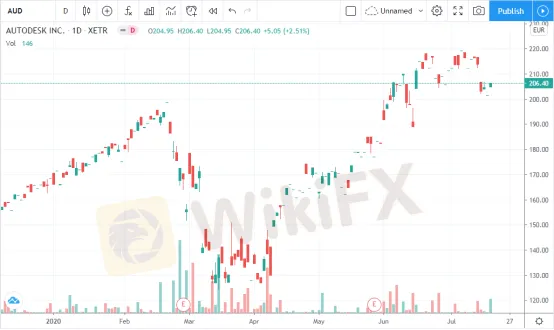AUD Keeps Rising due to the Recovery in Global Stock Markets
With an increasing worse pandemic, AUS/USD keeps being strong with an irresistible force. So far, AUD has dramatically rallied by 27% to 1,500 points since the low level of 0.5506 in March. Two reasons of a strong AUS are in the following.To get more news about WikiFX, you can visit wikifx news official website.
To begin with, many countries in the world continued to cut interest rate and purchase bonds due to the aggravated pandemic in order to bolster their economy, which, to some degree, helps to fuel the global stock markets. For example, the Nasdaq 100 Index has bounced back to a high level of 10.500 from the low level of 6,772 of March 24, up by 55% to 3,728 points. Even if the situation of COVID-19 continues to worsen, global stock markets show a prolonged recovery, which leads to an outperforming AUD related closely to the markets.

In addition, the economic data in Australia becomes better simultaneously, causing AUD/USD to rise. For instance, more indicators released last week, including AIG Manufacturing Index in June, Building Permits in May, Manufacturing Purchasing Managers‘ Index, AIG Performance of Construction Index and Services Purchasing Managers’ Index in June, performed significantly better than the previous. Based on the favorable factors and better economic data, traders are continuously optimistic about AUD.
In terms of the expected market trend, more focus should be put on the rate-setting meeting by the Reserve Bank of Australia(RBA) at 12:30 pm Hong Kong time tomorrow as well as the post-meeting statement. Under the current circumstance, the RBA doesnt need to deliver dovish suggestion, so AUD/USD is likely to challenge the upward resistance level of 0.7082. In a short time, it is difficult for the pair to break the major upward resistance level of 0.7206 despite an enormous increase.